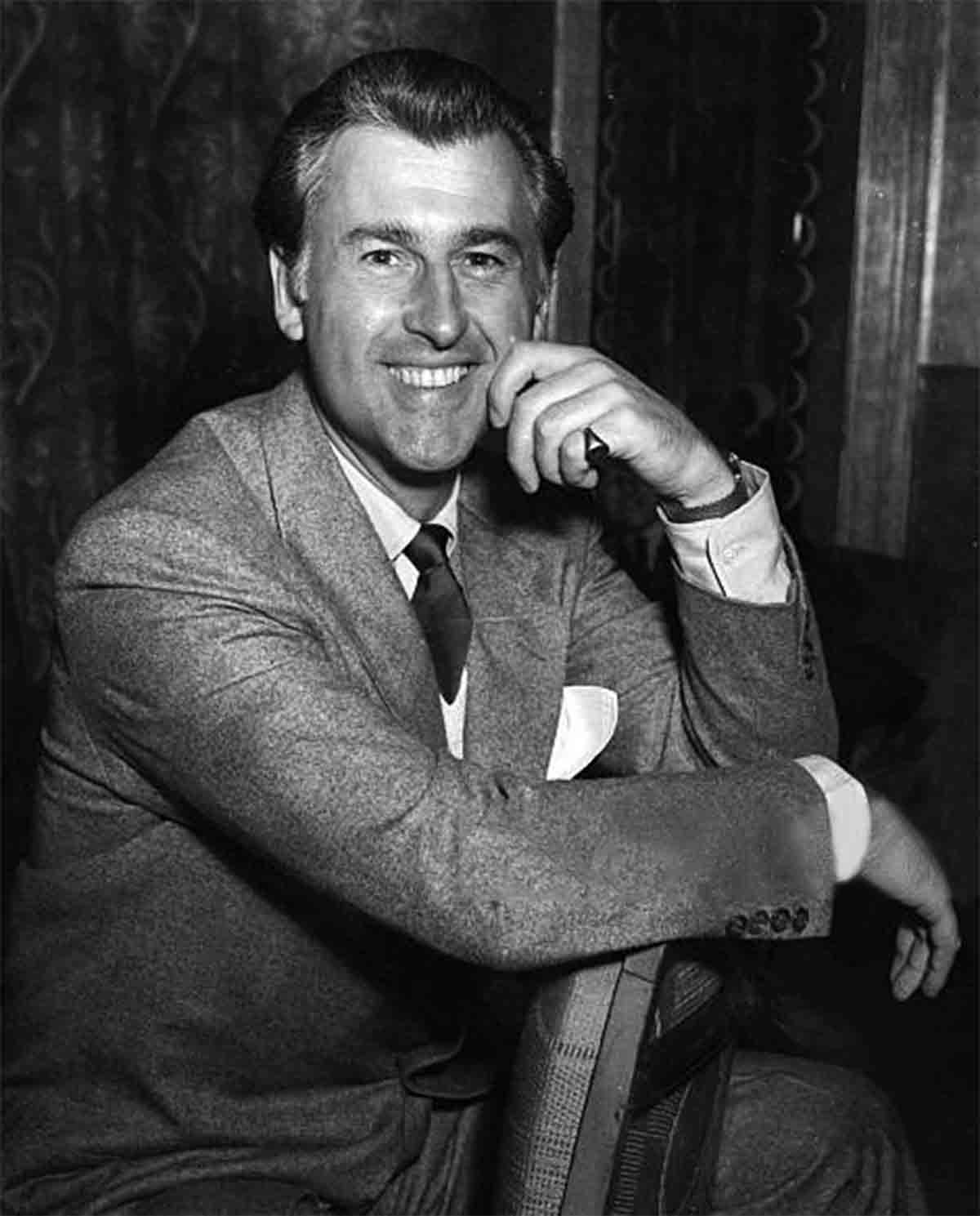
The End Of A Dream—Stewart Granger
Stewart Granger signaled the waiter to bring him another cup of coffee. He was in no hurry. He really had no place to go after dinner. He couldn’t help wishing he were home now . . . back on the ranch he loved in Nogales, Arizona.
He felt awkward and conspicuous, dining alone. There were couples at the other tables in the restaurant. It seemed to emphasize his loneliness, and he didn’t like the feeling. But perhaps he had better get used to it.
The waiter brought the coffee and, as he poured it, Stewart thought: After almost ten years, his marriage to Jean Simmons was over. And his home was for sale. Yet, he thought, if he were there now, after dinner he could walk through the cottonwoods to the lazily-winding Santa Cruz river. Or he could climb in the jeep and take a look at the new calf that had been born. But that was all in the past. He no longer had a home. The dream had ended—but not the memories.
He still loved Jean and she knew that. But she had told him she would be happier free and so he hadn’t contested the divorce; hadn’t even fought against the provision that gave her custody of their little three-year-old daughter, Tracy.
He was worried about Tracy. What would the divorce do to her? And the three weeks a year that the court said she could be with him, where would they spend that time? Tracy had been raised on the ranch; she had a pony and was learning to ride. Everything on the ranch had been named for her, for the ranch, both he and Jean agreed, was their future together.

A shadow fell across the table and, looking up, he saw a reporter he had known for many years. “May I join you?” the man asked and he nodded yes, almost grateful for someone he could talk to.
“Is it true?” the reporter asked. “Are you really selling the ranch in Arizona?”
“Now that Jean and Tracy are no longer there,” he explained sadly, “I couldn’t live in the place. It would be just too depressing for me.”
The reporter seemed to understand. “Any plans?” he asked. “Where will you live now?”
Stewart shrugged. Then he told the reporter that, after the ranch was sold, he’d probably go to Europe to make a series of pictures there. He added, “I’ll miss my home in Arizona.
Home was Rolling Hills, 10,000 acres of ranch land that started just east of Nogales and stretched to the Mexican border. There was a six-bedroom main house . . . a two-bedroom guest house and two-bedroom servants’ quarters. They’d put television in every room and built a swimming pool and tennis court. There was a ten-acre lake that fed into another smaller lake that was stocked with trout.
The waiter brought coffee for the reporter and they were silent until he’d poured it and left. Then the reporter asked, “What about the story that you and Jean were hardly ever at the ranch together?”
It was true. One of them had always been working while the other one was free. “When I’d be in Hollywood, I’d miss the ranch and come running back to it,” he said. “But when I got there, I’d miss Jean, who was usually filming somewhere, so I’d go flying back to her. I was only really happy when I could have them both together.
“Jean and I have been knocking our brains out making movies all over the world to pay for the cattle,” he explained. “In about three years we had both planned to settle down in Arizona for good—and never make another picture. I’ve been twenty-five years in the movie business,” he said, “but the greatest thrill of my life was as a Britisher, winning blue ribbons for my French cattle.”
Then softly, almost as if he were speaking to himself, he said, “I guess now I’ll die an actor instead of a cattleman.”
A few weeks later, Stewart Granger prepared to leave for Europe, where he’d make a movie. There, he would try to find another home, perhaps in Switzerland. Yet up until the last moment, Stewart’s friends and Jean’s hoped that they might come back together again. In a final gesture at trying to save their marriage, Stewart bought Jean a gift, an $8,000 German car. But it did no good; she refused even to accept his gift. It seemed there was no chance of a reconciliation. After she picked up her final divorce papers, it looked, despite her denials, as if Jean would marry director Richard Brooks, even if she had to wait a year to do it.
In mid-Atlantic two planes crossed. One was taking Stewart to Europe; the other was bringing Jean back to the United States. That was the closest they had been in four months. . . .
THE END
See Jean in U.I’s “Spartacus” and “The Grass Is Greener.” Stewart can be seen in “Sleeping Partners” for M-G-M, and “North to Alaska” for 20th Century-Fox
It is a quote. PHOTOPLAY MAGAZINE NOVEMBER 1960




